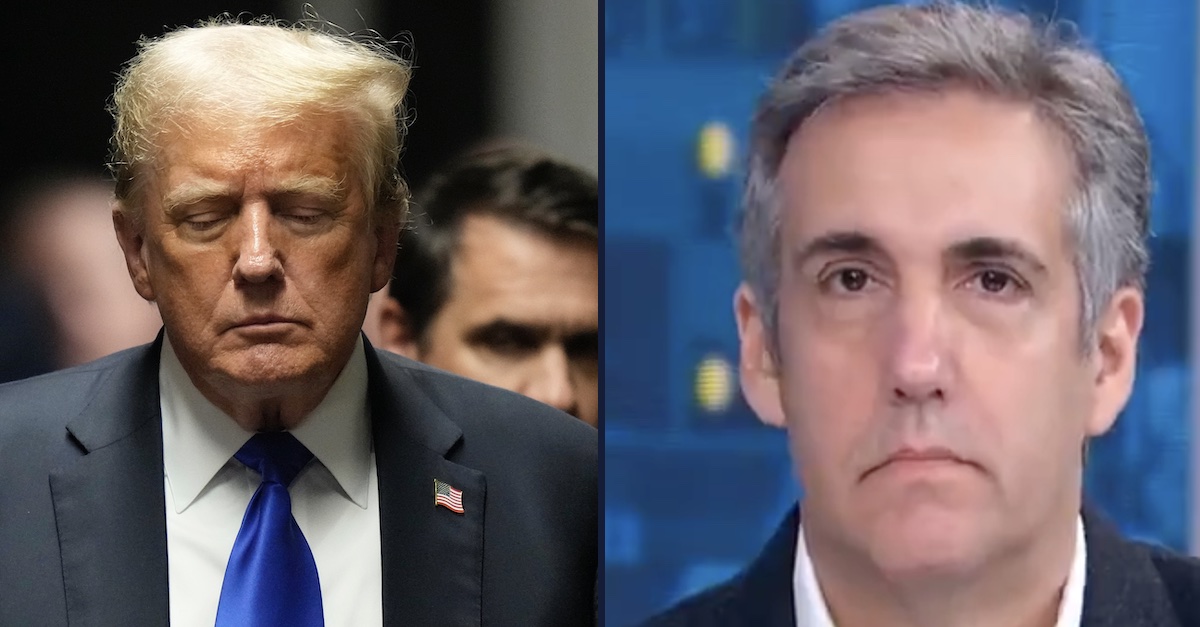
Left: Former President Donald Trump in May 2024 walks to make comments to members of the media after a jury convicted him of felony crimes for falsifying business records in a scheme to illegally influence the 2016 election (AP Photo/Seth Wenig, Pool). Right: Convicted felon Michael Cohen appears on Good Morning America the morning after the Trump guilty verdicts (ABC News/screengrab).
Donald Trump’s former fixer Michael Cohen begged the U.S. Supreme Court to let him sue the former president for allegedly violating his civil rights, but the justices flatly denied the petition without providing any reasoning in a Monday orders list.
After a loss at the U.S. Court of Appeals for the Second Circuit, Cohen called on SCOTUS to revive his lawsuit, claiming that his alleged “retaliatory imprisonment” and weeks in solitary confinement in 2020 was punishment for writing the tell-all book “Disloyal” and, therefore, violated the First Amendment.
In July, Cohen filed his petition for writ of certiorari, asserting that if SCOTUS did not take up the case of “paramount importance,” then that would bless the “chilling prospect” of no recourse when the government “retaliate[s] against critics with imprisonment.”
More Law&Crime coverage: Justice Kavanaugh on the sidelines again as Supreme Court ignores Michael Avenatti claim that conviction for stealing Stormy Daniels’ identity ‘risks sowing mischief’
A September reply from Cohen stated “[t]hat cannot be the law of the United States of America.” If SCOTUS did not act, Cohen again argued, then the high court “states clearly that the courts will not deter an Executive determined to incarcerate their critics.”
Cohen had asked the justices to answer two question both geared towards extending Bivens actions to the new context of a president jailing a critic:
1. Whether a cause of action exists under Bivens when federal officials imprison a critic in retaliation for his refusal to waive his right to free speech and there is no remedy to deter them from doing so?
2. Whether the retaliatory imprisonment of a President’s critic presents a “most unusual circumstance” under the Court’s ruling in Egbert v. Boule, 596 U.S. 482 (2022), that necessitates recognition of a new Bivens claim.
On Monday, the justices answered neither of these questions and simply included Cohen’s denial among dozens of other cases meeting the same fate.
Have a tip we should know? [email protected]




